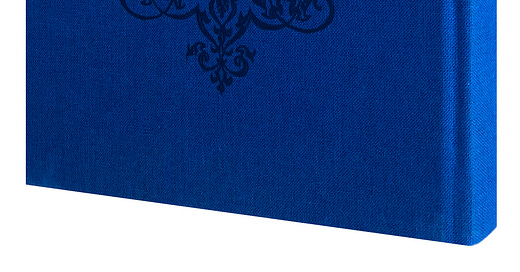(For the previous chapter of “The Land I Will Show You, click here. For the ToC, click here.)
5: Conclusion of Previous Chapters
It is a minority opinion that residing in Eretz Yisrael is included as a mitzvah among the 613 mitzvahs. But even if residing in Eretz Yisrael is not included in the number of mitzvahs, according to everyone it stands at the center of the entire Torah, and this itself creates a great moral obligation to reside in it. The difference between an official mitzvah and such a mitzvah is only in the quality of the obligation created: whether it is an absolute obligation or an obligation that depends on the understanding of its idea. [1]
The obvious conclusion is that residing in Eretz Yisrael is a great, major mitzvah according to all opinions. The words of Rabbi Yerucham Yehudah Leib Perlman – the Great One from Minsk – regarding this matter seem to me to be on target and true:
Certainly, residing in Eretz Yisrael is a mitzvah, even in these days... and the Ramban... brought the Sifrei and the Tosefta, on which he built his foundation to count residing in Eretz Yisrael as a mitzvah among all the 613 Mitzvos, and the Rashbatz agreed with his words in his book Zohar Ha’Rakia...
Although Rambam does not count it in the number of mitzvahs, and it seems that in his opinion it is not a biblical mitzvah, nonetheless, even in his opinion it is a great and major mitzvah, because in the fifth chapter of the Laws of Kings he brought all those laws such as that it is forbidden to leave from Eretz Yisrael to outside of it, and that it is better to reside in Eretz Yisrael even in a city that has a majority of idolaters, over a city outside EY that has a majority of Israelites... and where is the source for all this... if not that there is an established and strong commandment here?
It seems possible that even according to Rambam it is a biblical mitzvah, but it wasn’t said explicitly, rather implicitly, that is, from what we have seen that the Most High from the beginning of the time when He was first revealed to the rock from whom we were hewn, our father Abraham, and He chose him and his sons after him as His treasured people, He immediately established a place for him: “Go for yourself from your land to the land I will show you” (Genesis 12:1), and in every utterance and every word from Him to Abraham, He didn’t stop mentioning it, and also to Isaac and Jacob... mention of it is made almost in all the passages of the Torah and its commandments... and every time He didn’t cease to praise and cherish and exalt it, and He called it every term of endearment… and His treasured people, in whom the Spirit of Hashem spoke, called it a coveted land, the holy land, the desired land, the land of life, beautiful landscape, perfect beauty, Hashem's property – from all these things it is clearly seen and revealed to us that Hashem's good desire and His will is that we, His nation, when we are worthy, shall choose and establish this holy and chosen land to be the place of our residence, and that our leaving there is evil in His eyes. Therefore, even though He did not explicitly command us about this virtue specifically, since we recognize and know and understand from all His words that this is His desire and will, it is incumbent upon us as attentive children to strive as much as we are able to fulfill His desire and avoid in every way possible to oppose His will... this, then, is a mitzvah as much as all other mitzvahs of the Torah, since we know for certain that this is Hashem's desire, except that according to the Rambam... since no express commandment came about this from the mouth of Hashem, it is not counted in the number of the 613, even though it is a biblical mitzvah...
In conclusion, all these things are enough to show us that residing in Eretz Yisrael, call it whatever we may, an explicit biblical mitzvah, as per the opinion of Ramban and Rashbatz, or a mitzvah derived through inference… however, it is clear that it is a great and mighty mitzvah.[2]
The mitzvah of residing in Eretz Yisrael is a mitzvah like any other mitzvah of the Torah, its significance is great, and it is incumbent on everyone who understands its essence and virtue. But a significant factor opposes the return to it: the oaths that the Holy One, blessed be He, adjured Israel against taking action to hasten the redemption. This issue will be discussed in the next section.
(For the next chapter of “The Land I Will Show You,” click here.)
The Hebrew book is available for purchase from me directly, in Judaica stores, and online, here:
[1] And even according to Ramban’s opinion, the obligation of this mitzvah is not absolute, but depends on various external circumstances, as shall be explained in section 2, chapter 3.
[2] Published in the periodical Sinai, vol. 6, pg. 211, and printed, from there, in Shivas Zion, Har Berachah 5772, pg. 412.



